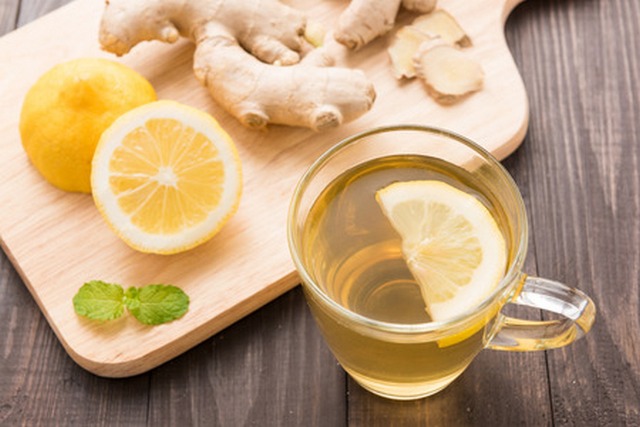Getting a common cold doesn’t have to be so… common. There are things you can do naturally to make getting ill less likely.
But, if you do happen to get ill, there are things you can also do to help support your body to fight it off.
Good hand hygiene and overall healthy habits can reduce your risk of getting ill in the first place. And good nutrition can help your immune system fight off a cold more quickly. Imagine your germ-fighting immune cells all hungry and tired, versus them being nourished and full of energy.
And that’s what this post is all about.
Many people with chronic fatigue have underlying viruses such as Epsteinn Barr virus and cytomegalovirus. So the tips below can help you to boost your immune system.
First I’ll give you some tips to reduce your risk of getting ill in the first place. Then, I’ll let you in on some of my strategies to recover from that cold you may still get from time to time.
Natural tips to reduce your risk of getting a cold
Here are some great ideas to incorporate into your daily life to reduce your risk of getting a cold.
1 – Wash your hands. A lot. Your hands can trap and transport all kinds of microbes that cause illness. And I’m not just talking about colds here, but lots of different germs.
NOTE: Antibacterial soap is not recommended! Not only is it no more effective than regular soap and water, but it can contribute to antibiotic resistance.
2 – Get enough nutrients. I know this is way oversimplified, but I would be remiss to exclude it. Every cell in your body, including your immune cells, need enough of all the essential nutrients. The more nutrition you have, the better and stronger you will be, especially with vitamins A, C, and E. Vitamin A-rich foods include carrots, sweet potato, and organ meats. Vitamin C-rich foods include bell peppers, broccoli and citrus fruits. Vitamin E-rich foods include nuts, seeds, and leafy greens. Get vitamin D to boost you immune system from 20 minutes bare skin exposure on face and arms everyday. Vitamin D-rich foods include eggs and mushrooms.
3 – Probiotic foods. Helping our health-promoting gut microbes with more of their probiotic friends is in order here to help keep the immune system strong. Try 1-2 servings/day of fermented foods and drinks like sauerkraut, kimchi, miso, kefir, or kombucha.
4 – Prebiotic foods. Feeding those friendly gut microbes their favourite foods can help them to grow and flourish. They love fibrous foods like onions, asparagus, berries, bananas, sweet potatoes, whole grains, and seeds. Aim for 2-3 servings/day.
5 – Get enough sleep. Did you know that our immune system cycles with our circadian system? When we sleep our immune cells produce antibodies to fight infections. Try to get at least 7 hours every single night, even when you’re feeling great.
Natural Tips to Recover from Cold and Flu
When you do get an infection, not only do you need more nutrients to fight it off, but your body also has a harder time absorbing and using the nutrients you take in. Sometimes this is because of reduced hunger, sometimes due to gastrointestinal reasons. Either way, nourishing your body is even more important. When you do get ill, make sure you are implementing tips 1-5 plus the tips below that are crucial for getting over a common cold.
6 – Drink lots of fluids. Being ill can be dehydrating. Fluids like water, chicken soup, and green tea are warm, hydrating comfort drinks. Chicken soup is a source of electrolytes, especially if homemade from a real chicken with lots of vegetables. Green tea has been shown to boost some of our immune cells, and this can help to better fight off the invading germ.
7 – Rest and recover. When your body is fighting an infection, it’s busy working hard for your health. Give it a break and relax while you’re feeling under the weather.
Conclusion
There are lots of things we can do to stay healthy and reduce infections naturally. Washing your hands is a proven way to reduce your risk. And staying healthy in all other ways helps a lot. Getting enough nutrition, eating probiotic and prebiotic foods, and getting enough sleep are key year round.
If you do get ill, keep up all of your good habits above, and make sure to add some warm, healthy fluids, and extra rest.
What do you do when you get a cold? Leave a comment below to let me know.
Recipe (Throat soothing): Honey Lemon Ginger Cough Drops
Ingredients
½ cup honey
2 tbsp lemon juice
1 tsp freshly grated ginger root
Instructions
Put ingredients into a small saucepan.
Stir frequently until it becomes foamy. Be careful because the honey can burn easily.
Remove from heat and continue to stir until the foam reduces.
Put the saucepan back on the heat.
Repeat this until a candy thermometer reads 300F.
Drop a bit into a glass of ice water. If the mixture forms a hard, crunchy ball, it’s ready! If not, keep stirring and heating for another minute or two and try with the ice water again.
Once a hard ball forms from a drop into the ice water, let the saucepan cool until the foam has reduced.
Drizzle the candy into a candy mold or onto oiled parchment paper.
Let cool at room temperature until the cough drops are hard.
Pop out of the mold or break into pieces, and store in an airtight container.
Tip: You can sprinkle them with vitamin C powder to keep them from sticking together.
References:
https://www.precisionnutrition.com/what-to-eat-when-sick
https://www.thepaleomom.com/natural-approaches-to-cold-flu-season/
http://nutritionfacts.org/video/preventing-the-common-cold-with-probiotics/
https://www.youtube.com/watch?v=9dExiRwh-DQ
http://www.who.int/gpsc/clean_hands_protection/en/
Copyright: capacitorphoto / 123RF Stock Photo




